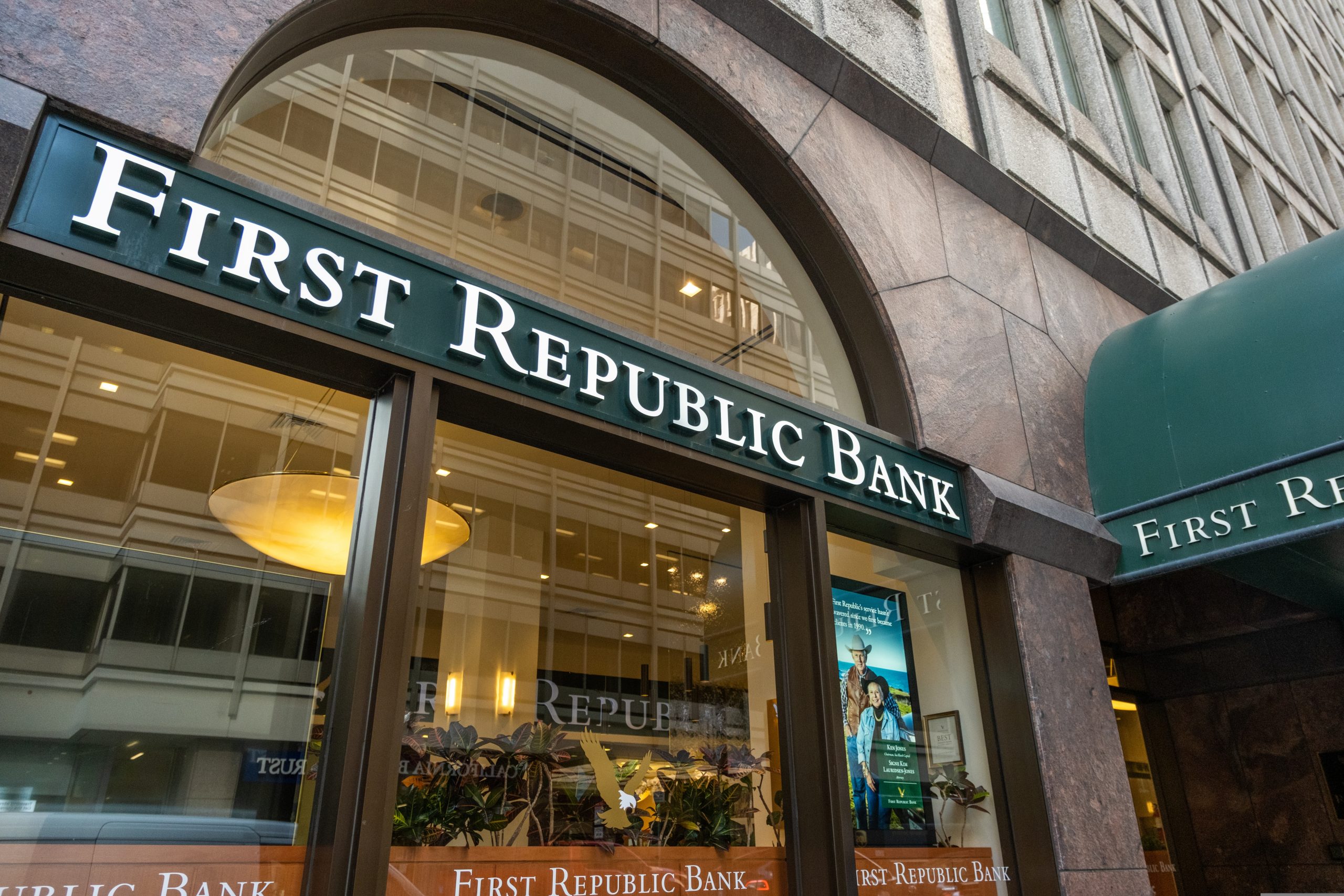

All investors use insights, trends, and data from across the globe to help them make decisions. Between the lines is an easy way for you to understand how a current topic might be impacting markets and influencing your investments.
April saw another high-profile US bank get into trouble with depositors withdrawing $100bn from First Republic – twice what analysts had anticipated – forcing regulators to step in. A deal was brokered with JP Morgan who secured the bank for $10.6bn. However, this collapse has caused further concerns about the country’s financial system.
Though First Republic was the third high-profile US bank collapse in 2023, this does not represent systemic concerns. Rather, the bank offered low-cost mortgages to wealthy depositors and was therefore vulnerable to sharp rate rises. The US banking industry is in a much stronger place than 2008, with large banks now better capitalised, but investors should remain vigilant about smaller banks.
“We don’t anticipate broad contagion to the large systematically important banks,” said Ian Jensen-Humphreys, portfolio manager at Quilter Investors. “Although it would not surprise us to see more isolated failures of smaller, weaker regional banks.”
Such strife could cause further consolidation, potentially creating concentration risk. For context, JP Morgan was initially not allowed to buy First Republic because it already holds over 10% of all customer bank deposits in the US.
European equities have been one of the better-performing markets in 2023 as fears have receded about the need for energy rationalisation. A milder-than-expected winter gave some respite to strained energy relationships, allowing stockpiles to be replenished and boosting sentiment towards equity markets.
Russia’s invasion of Ukraine had put energy relationships in a state of flux, but the past few months have stabilised the situation. A milder winter allowed the EU to rebuild gas reserves and many leaders have accelerated liquified natural gas (LNG) projects, boosting Europe’s reliance on this commodity. Fears over energy security have been subdued and has given confidence to European equity investors.
However, like all commodities, energy prices are subject to change, and investors should be wary about the impact of future seasons. Ian Jensen-Humphreys explains: “We would be concerned that the current benign situation could easily worsen, should the weather be less accommodating for the rest of 2023. The EU has acted to try to encourage and speed up alternative renewable energy sources, but it is likely to take years to materially wean the continent off its fossil fuel dependency.”
Going into 2023, many investors were concerned about a global recession with inflation at sustained levels in many major markets and flux in energy prices continuing to cast doubt around the world. However, economic data has generally been resilient and is causing some investors to revisit their outlooks for the rest of the year.
As this year has progressed, strong numbers in the Purchasing Managers’ Index for the services sector – which represents the rate of expansion or contraction within the sector – have surprised commentators, casting doubt on concerns over a global recession. According to the International Monetary Fund, the chances of recession (two successive quarters of negative economic growth) remain high but there are caveats to this.
It is worth remembering, global economies are still recovering from the pandemic with many consumers still having savings from this period to spend. Central banks are also focused on reducing the high levels of inflation, which is an important backdrop. Interest rates are likely nearing their peak, support is coming through from lower energy prices, and unemployment remains low. herefore, any recession could be mild.
By clicking this link you are departing from the regulated site of Ablestoke Financial Planning LLP.
Neither Ablestoke Financial Planning LLP nor Quilter Financial Planning accept responsibility for the accuracy of the information contained with this site.
Open Link